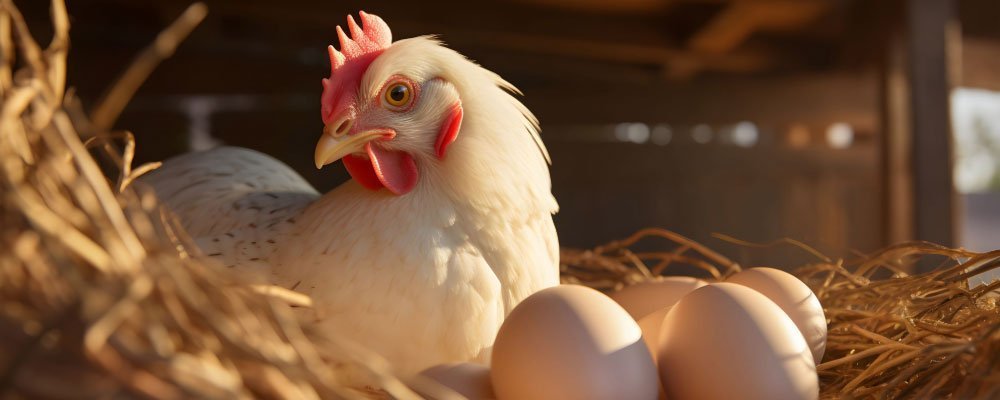
Chicken Eggs & Hen Laying - A Guide
How old are hens when they start laying eggs?
Hens can start laying (called Pullets when they’re young) when they are about six months old. Those hatched very early in the spring will sometimes lay in the autumn, but pullets reaching maturity during cold weather usually won't lay until it warms up again in their first year.
Do hens lay less eggs as they get older?
It is believed that hens are at their peak from one to two years of age and after four or five years old, hens become less productive. Nevertheless, you will still get plenty of eggs even after four years old and hens as old as nine years old are still laying.
Nevertheless, you must expect fewer eggs as the hens get older and lower virility as the cocks get older. Indeed, it's a good idea to raise a few young hens each year to prevent sudden decline of laying by your flock. A laying hen can be identified by her soft, deep abdomen and pubic bones that are wide apart. For each given breed, the hens with the larger, brighter combs are usually the better layers.
How long do chickens live for?
Chickens rarely die of old age as they are often eaten before they die of natural causes. Most backyard birds die through unnatural causes such as predators, disease, culling or being eaten for dinner. Nevertheless, the broad range is between five and ten years, though it’s common for chickens to reach between eight and ten years old.
How often can chickens lay eggs?
Depending on what breed you have, you can expect to get an egg every day or every two days from each hen. Commercial hens were developed especially for egg production, so they usually lay better than others, so it is very much dependent on the breed.
Hens stop laying during the moult in autumn and then usually take a rest through the colder weather. Then, when the hens are ready to lay again in spring, the vivid colour will return to their combs. A few hens may start laying right after the moult and continue to lay throughout the winter months; so, depending on the breed you choose, the weather, their diet, and the size of your flock, you might get some eggs most of the year.
If such fluctuations in egg laying can be expected from backyard chickens, you may wonder how eggs are available for sale all year round. This is because commercial producers use only hens bred specifically for egg laying, and they regulate the temperature and lighting in their hen houses to ensure optimum production.
One of the reasons backyard hens don't lay as well during the winter is that the days are of course shorter. If you have electricity in your coop, you might burn lights for a few hours in the evening or early morning during the winter (as the commercial eggeries do) to simulate the 14 to 16 hours of sunlight of summer days and encourage your hens to continue laying.
How to encourage hens to lay eggs in nesting boxes?
Hens will generally lay their eggs in the nesting boxes provided for them, but sometimes they need the encouragement of fake eggs in the boxes, which can be purchased at farm supply stores. Sometimes hens hide their eggs and if you think you aren't getting all the eggs you should, look around for some hiding place such as under a bush, behind the nesting boxes or in the hollow trunk of a tree.
When should I collect chicken eggs?
It's a good idea to collect eggs two or three times a day. There is usually a laying pattern, so after you've had your flock for a while you will know when they are likely to lay. Frequent collecting of the eggs keeps them from getting broken by other hens coming into the nest to lay or by chickens scratching around in the nesting litter.
It also keeps them from being chilled or overheated during weather extremes and helps prevent chickens from eating the eggs, which unfortunately does happen. Predators are often attracted to the nests if the eggs remain in them overnight. If wild birds can get into the nesting boxes they may peck holes in the eggs, but they usually won't go into the coop if there are no eggs.
How big should chicken eggs be?
Egg size depends on the breed of your hens. Large breeds lay bigger eggs than bantams, and some large breeds lay bigger eggs than others. A pullet's eggs will be smaller than a hen's, for example, and small eggs are sometimes laid during summer hot spells.
Besides coming in a range of sizes, eggs also come in an assortment of colours, varying from white to a reddish brown. Usually one breed will lay one colour, but there may be some variation. The only difference is in the colour of the shell as the nutritional value of the contents is the same. Some hens can even lay green or blue eggs!
Should I wash chicken eggs?
Unless absolutely necessary, it’s best to avoid washing eggs. A freshly laid egg is coated with a moist outer membrane, which dries right away and forms a barrier that retards moisture loss and prevents bacteria from entering the egg.
The bloom is removed when an egg is washed, and the egg's keeping ability is thereby greatly reduced. This is of concern either if you want to hatch the egg or if you store it for consumption. Should an egg become soiled, try to brush or scrape the dirt off instead of washing it. But, if it does require washing, use the eggs right away.
How long will eggs keep for? How can I tell if eggs are fresh?
Put eggs for consumption into the refrigerator as soon as possible after collecting them. They will keep for two weeks or more, but as they get older the white loses its firmness and the yolk may break when the egg is cracked.
You can usually tell how fresh an egg is by how much it spreads when it's cracked into a frying pan. The fresher the egg, the more congealed the white will be and the more the yolk will stand up.
Moisture evaporates from an egg over time, so an older egg will have a larger air cell than a fresh egg. The cell can be examined by immersing the egg in water, so if the egg sinks, it is fresh. Conversely, if the egg tilts upwards or even floats, it is old.
Can you freeze chicken eggs?
Freezing eggs is a good way to handle the summer egg surplus and provide for the winter shortage at the same time. Properly frozen eggs will be very much like fresh ones in appearance, flavour and nutritional value. Eggs should be frozen only if perfectly fresh, and can then be stored in the freezer for nine months to a year.
But there is an important factor to consider when freezing eggs. Eggs to be frozen should be removed from their shells, or otherwise the shells may burst when the contents expand.
The best way is to whisk raw eggs and freeze them. Add half a teaspoon of salt for each cup of eggs to keep the yolks from getting pasty; then, pour the eggs into ice cube trays and store them in a plastic bag. Thawed eggs should be used within 24 hours.






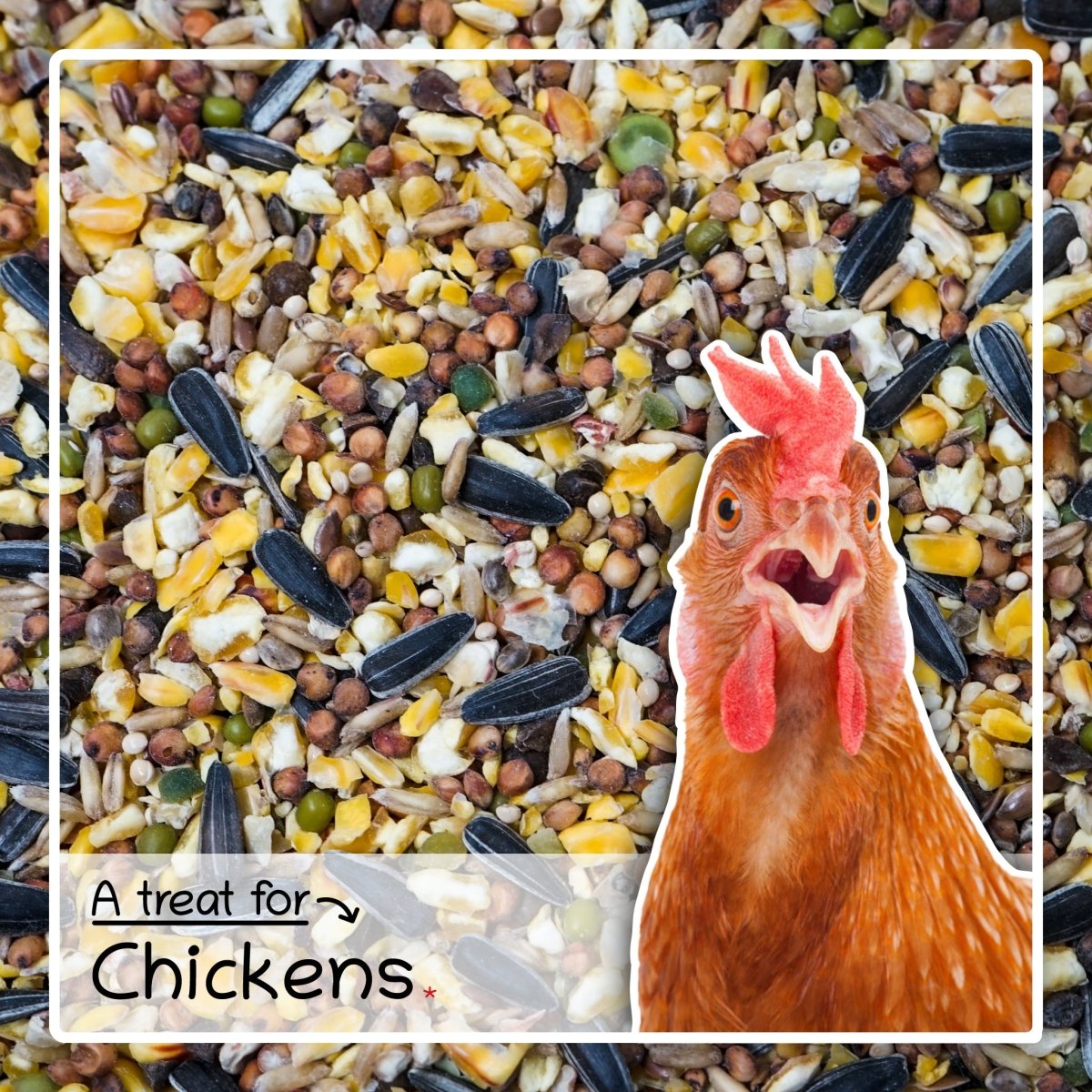
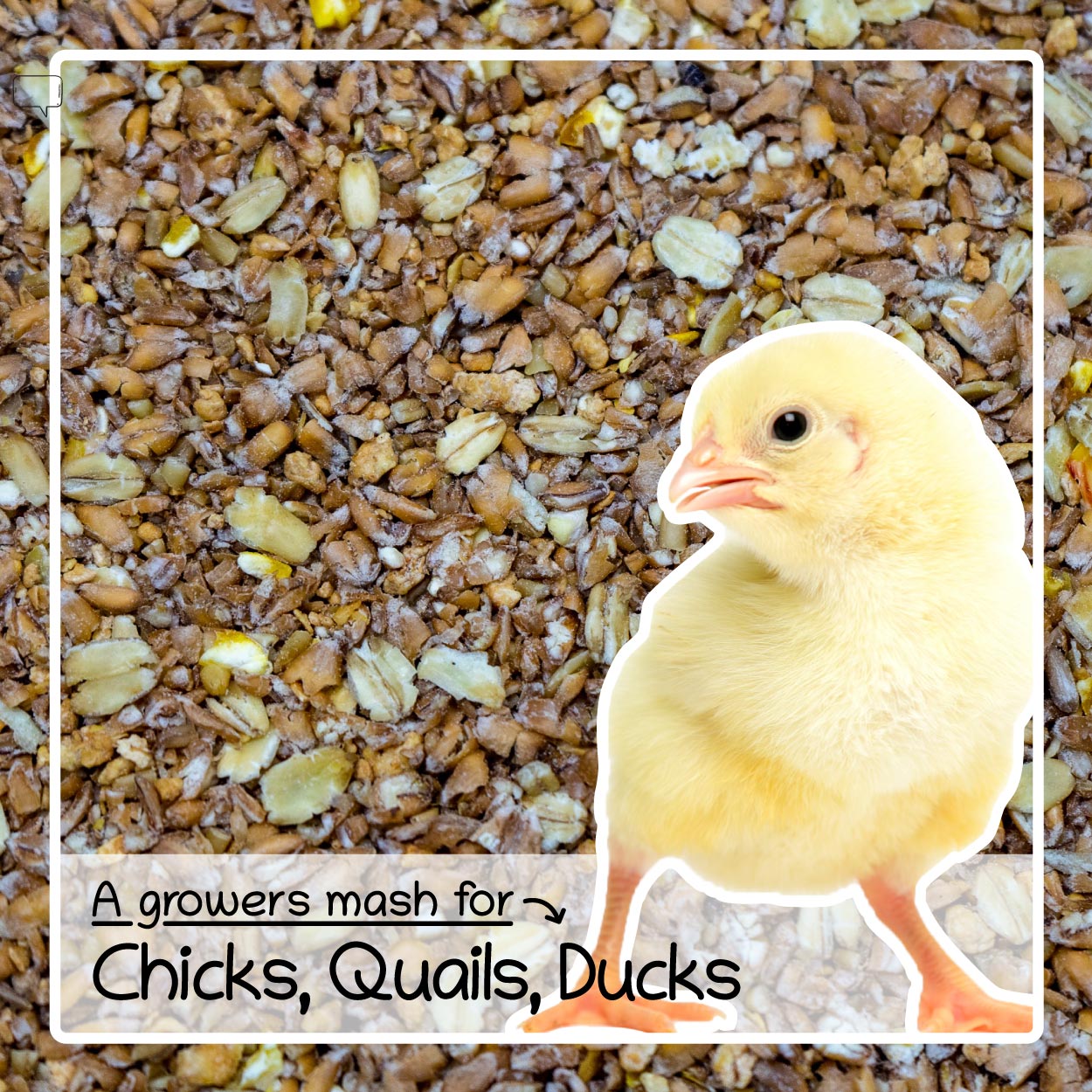







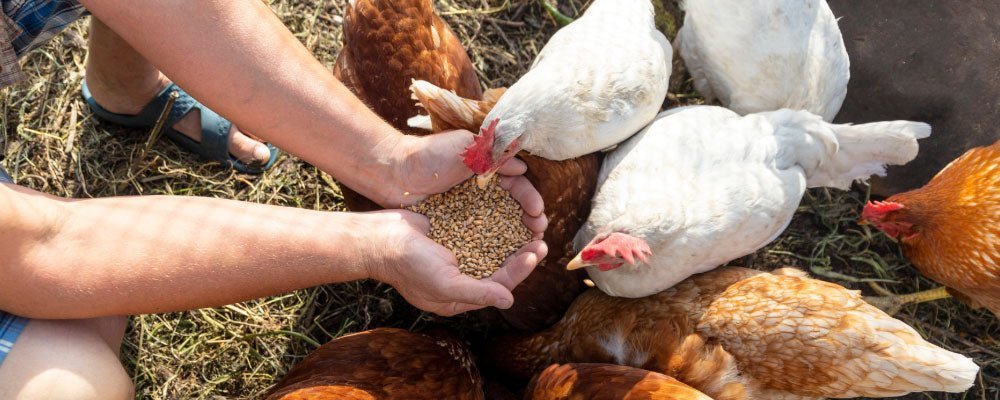
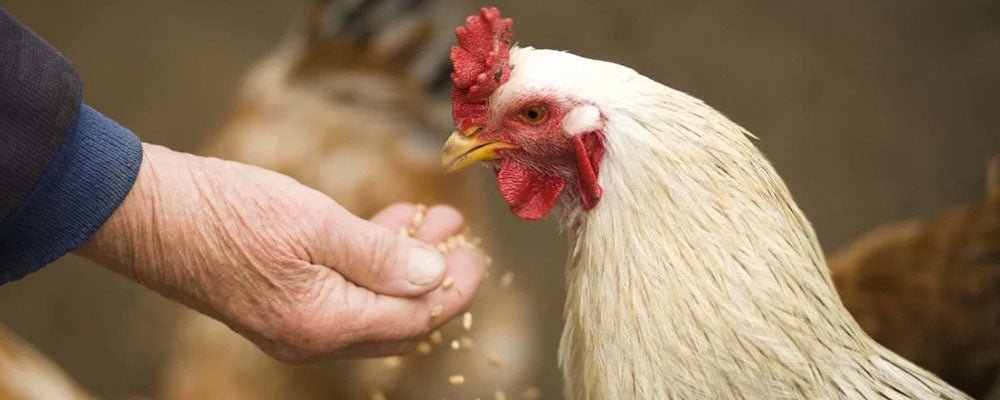
Leave a comment
This site is protected by hCaptcha and the hCaptcha Privacy Policy and Terms of Service apply.